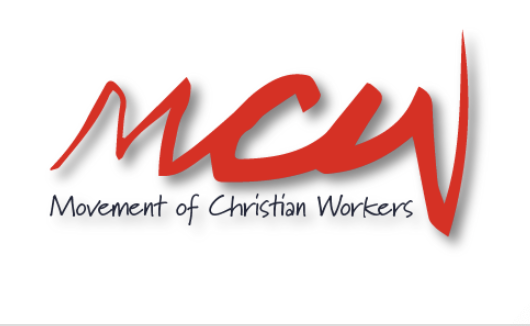Many of us will know that Mauritius in the Indian Ocean, a destination visited by many from the UK for years, is an Island Paradise. Some 350 miles east is a small autonomous outer island called Rodrigues and is part of the Republic of Mauritius. With a population of some 40,000, due to its location and microclimate of two seasons with a temperature range of 23-26oC all year round it too could be described as Paradise Island.

It’s here that one of the Co-Presidents of the World Movement of Christian Workers (WMCW), Jean Claude Tolbize, lives. He has written to us to describe what Covid-19 means for the working people of the island and how its economy is shaken by global events
“Mes chers amis Anglais,
Covid-19 has completely shaken the lives of working people on the Island of Rodrigues. We have seen on TV what’s been happening in the different countries in Europe and all around the world. Working people have not known such a state of emergency since 1945.
What we see around the world has become a reality for working people in Rodrigues. For us everything has come to a complete and sudden stop. We must all stay at home, and there is total fear that the virus will enter the Island. As of June 1st, 2020 the virus has still not entered the Island.
Most basic food stuff is increasingly scarce, all the supermarkets, small shops and markets have been closed! The people have enormous difficulty in obtaining provisions because there is a total shutdown of air and sea services to and from the island!
We have noted a growth in individualism as witnessed by stockpiling of goods. For example, some people have bought up to 10, 25 kilo bags of rice for their own personal use, and the poorest suffer because they cannot even buy 1 kilo of rice to feed their families.
The tourist industry is on its knees because the link by air has been interrupted and so no tourists can visit the island. Many workers rely on tourism by making and selling traditional crafts in order to survive.
All the workers in the tourist sector have been forced into unemployment and we have no idea when it will start up again.
During the lockdown workers in the informal sector are finding life very hard indeed. They are having a lot of difficulty finding ways to earn income for their families. It has to be said the lockdown has brought huge difficulties for their families to live as they have no income and in certain families there are violent and selfish disputes.
Elsewhere, the situation had brought a consolidation in families, with sharing and listening to each other creating a sense of solidarity as they cannot work, they all muck in, couples have returned to talking with each other.
The Regional Government has played its role vis a vis the population. There are regular Radio and TV public information communications as well as on social media, to raise awareness, educate and explain to the people the necessary sanitary measures they need to take to protect themselves from the virus and also to help the most vulnerable.
We are resolved to develop and take control of the increased need for local food production.”
Jean Claude Tolbize.




